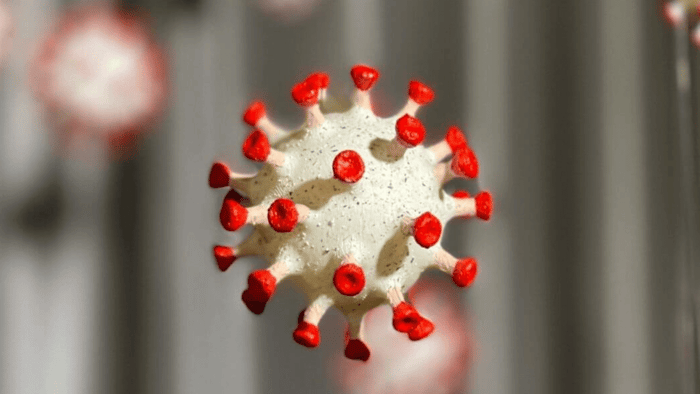Table of Contents
While a healthy diet and regular exercise are essential, certain supplements can offer additional support for cardiovascular health. Some may even reduce your reliance on statins and other drugs prescribed to address typical markers like cholesterol and blood pressure. Not all supplements for heart health are equally effective, but some have well-documented benefits that make them valuable natural tools for a stronger heart and long-term vascular health.
1. Nattokinase
Nattokinase is a natural enzyme extracted from natto, a Japanese fermented soybean dish. It’s at the top of our list of supplements for heart health because it’s multi-faceted.
One of the most notable benefits of nattokinase is its fibrinolytic activity. (1) Nattokinase helps break down fibrinogen, a protein involved in blood clot formation, and fibrin, the main protein in blood clots. This may reduce your risk of blood clots, a leading cause of heart attacks and stroke.
Studies suggest that nattokinase may help lower blood pressure by improving circulation and relaxing blood vessels, potentially reducing strain on the heart. (2) It also appears to support balanced cholesterol levels.
While cholesterol levels aren’t the heart health driver we may have thought they were, any positive effect on blood flow can help maintain flexible, healthy arteries.
Unlike some statins and beta-blockers often prescribed to improve health markers for heart disease risk, nattokinase offers a dietary approach for circulatory support. It’s typically available as capsules, softgels, and in powder form like our nattokinase supplement, Toku Flow.
Read Next: Potential Degradative Effects of Natto on COVID Spike Protein
Toku Flow is a daily supplement from Toku Health for natural, multi-functional cardiovascular support. It combines nattokinase with vitamin K2 and beta-glucan to support healthy circulation, vascular elasticity, and lipid metabolism.
2. CoQ10
Coenzyme Q10 (CoQ10) is a naturally occurring antioxidant that plays an important role in the production of cellular energy and, as a result, heart muscle function. It also protects against oxidative damage, which is helpful for those with heart failure. (3)
As we age, our bodies produce less CoQ10, putting our hearts at risk for more strain. (4) Research suggests that CoQ10 supplements can fill in those gaps and improve heart function by enhancing the heart’s pumping ability and supporting blood vessel health.
It’s important to note that CoQ10 is already often recommended alongside statin medications. Statins may lower cholesterol, but they can also reduce natural CoQ10 levels in the body. (5) This can cause fatigue, muscle pain, cramps, and weakness.
Find CoQ10 as a softgel, powder, gummies, or a water-soluble syrup. Studies suggest ubiquinone, the oxidized form, is better for heart health than ubiquinol (CoQH2). (6)
3. Curcumin
Curcumin, the active compound in turmeric, is recognized for its anti-inflammatory and antioxidant properties. As chronic inflammation and oxidative stress put you at increased risk of heart disease, curcumin may help counter these processes.
One of curcumin’s key heart-protective effects is its ability to improve endothelial function, the lining of the blood vessels. (7) Poor endothelial function is associated with high blood pressure and atherosclerosis. By enhancing this function, curcumin supports better blood flow and reduced vascular resistance for overall heart health.
Curcumin may also help lower low-density lipoprotein (LDL) cholesterol and triglyceride levels while raising high-density lipoprotein (HDL) cholesterol. While calling LDL cholesterol the “bad” kind overstates its role in heart health, it can become an issue when it’s oxidized due to chronic inflammation.
Some studies also suggest curcumin can reduce markers of heart damage and support recovery after heart-related events due to its protective effects on heart tissue. (8) Find it in a variety of forms, including bioavailability-enhanced versions containing piperine, or black pepper extract.
4. Fish Oil (Omega-3 Fatty Acids)
Omega-3 fatty acids, particularly eicosapentaenoic acid (EPA) and docosahexaenoic acid (DHA), help reduce inflammation throughout the body, a key contributor to cardiovascular disease.
Studies show they also help lower triglyceride levels, reduce your risk of hypertension, improve arterial function, and slow the progression of plaque in the arteries. (9) Omega-3s also play a role in the stability of heart cell membranes, reducing your risk of arrhythmias, or irregular heartbeats. (10)
All of this can have significant health benefits as you look to reduce your risk of coronary heart disease. Include them as part of a healthy diet that includes fatty fish like salmon, mackerel, or sardines, or as dietary supplements in fish oil form.
Fish oil supplements are widely available and typically come in capsules or as a liquid. They can vary in potency and bioavailability, so seek out supplements that have gone through third-party testing.
5. Folic Acid (Folate)
Folate, also known as vitamin B9, is essential to DNA synthesis, cell division, and red blood cell formation. It also helps regulate homocysteine levels in the blood. (11) Homocysteine is an amino acid that, at high levels, has been linked to an increased risk of cardiovascular disease.
Folate also supports healthy blood vessel function by reducing inflammation and improving endothelial function (12). Improving vascular health is essential for supporting heart health overall.
Natural sources of folate include leafy greens, legumes, citrus fruits, and fortified grains. Its supplement form, folic acid, is commonly sold as a standalone vitamin B9 or in a B-vitamin complex.
Many multivitamins also include folic acid alongside essential nutrients like calcium, vitamin C, vitamin D, and vitamin E.
6. Magnesium
Magnesium supports hundreds of enzymatic processes in the body, many of which are essential to cardiovascular health. One of its most important roles is regulating heart rhythm and muscle contractions, including the heartbeat itself. (13)
Magnesium helps maintain normal blood pressure by relaxing blood vessels and supporting the balance of electrolytes like potassium and calcium. (14) Both are critical for healthy nerve and muscle function. As a result, adequate magnesium intake may lower your risk of conditions like hypertension, stroke, and heart disease.
Healthy levels of magnesium also support glucose and insulin metabolism. (15) When it comes to the heart, everything is connected. Metabolic conditions like diabetes are a major risk factor for cardiovascular disease.
Magnesium deficiency may contribute to arrhythmias, elevated blood pressure, and an increased risk of atherosclerosis. (16) Leafy greens, nuts, flaxseeds, whole grains, and legumes are excellent dietary sources, but magnesium supplements can help fill in nutritional gaps.
Supplements are available in various forms. Studies show magnesium citrate is most easily absorbed. (17) Magnesium lactate and magnesium malate are gentler on digestion, and magnesium taurate may balance blood sugar levels due to the active ingredient taurine. (18)
7. Red Yeast Rice
Red yeast rice is a traditional Chinese food and supplement made by fermenting white rice with the yeast Monascus purpureus. The key active compound is monacolin K, which is chemically identical to lovastatin, a prescription statin drug. (19)
Monacolin K works by inhibiting enzymes involved in cholesterol production in the liver for a balanced lipid profile. (20) In addition to addressing high cholesterol, the anti-inflammatory may have some protective effects for healthier heart and blood vessel function.
8. Vitamin K2
Vitamin K2 helps regulate calcium distribution in the body. While calcium is essential for bone strength, excess calcium in the arteries can lead to arterial stiffness and plaque buildup, increasing the risk of heart disease. (21)
It works by activating proteins like osteocalcin, which help direct calcium to the bones and teeth where it’s needed, and away from the arteries and soft tissues where it can cause harm. (22) This supports more flexible, healthier arteries, better blood flow, and a lower risk of atherosclerosis.
Vitamin K2 is found in fermented foods like natto, some cheeses, liver, and poultry, and is also available as a supplement. Some options pair it with vitamin D3 to optimize calcium use in the body.
Toku Flow is our natto supplement that combines K2 with nattokinase and beta-glucan for a multi-pronged approach to heart health.
9. Fiber and Plant Stanols
Soluble fiber, such as oat beta glucan, support healthy LDL cholesterol by prompting liver processes that use more cholesterol. (23) It also supports healthy blood sugar levels, weight management, and gut health, all of which indirectly benefit your heart.
Plant stanols and plant sterols are naturally occurring compounds that have a similar structure to cholesterol. (24) They compete with cholesterol for absorption in the gut, effectively lowering total and LDL cholesterol levels. They may also have anti-inflammatory effects on blood vessels, potentially helping prevent atherosclerosis.
Both are available in foods and as supplements. Soluble fiber is found in oats, barley, legumes, and fruits. Fiber supplements are commonly sold as psyllium husk, in powders, capsules, or chewables. Plant stanols are found in fortified foods or as standalone capsules or tablets.
Read Next: Nattokinase for Spike Protein Detox: How It May Aid Recovery
Key Considerations
As with any supplement, the U.S. Food and Drug Administration (FDA) doesn’t regulate dosages or provide other guidance on supplements for heart health.
You should then always check in with your healthcare provider before starting a new supplement regimen, especially if you’re already on heart-related medications. They can point you to the right forms and the proper dose, as high doses of some supplements can lead to side effects.
It’s also important to research supplements for heart health before you buy. Look for products that are third-party tested to ensure purity, potency, and the absence of contaminants. Choose reputable brands with transparent labeling. Avoid products with unnecessary fillers or other additives.
The Takeaway
A holistic approach to heart health is always best. Your diet, physical activity levels, and stress management all matter for a healthy heart.
Supplements can be a positive addition to that approach, and many doctors and cardiologists already recommend that patients consider supplements as a complementary therapy.
Nutrients such as nattokinase can complement a heart-health program; but always work with your clinician before adjusting medications or therapies.
Sources
A single-dose of oral nattokinase potentiates thrombolysis and anti-coagulation profiles
Coenzyme Q10 supplementation for the treatment of statin-associated muscle symptoms
Curcumin and Endothelial Function: Evidence and Mechanisms of Protective Effects
Effect of omega-3 fatty acids on cardiovascular outcomes: A systematic review and meta-analysis
Folic Acid Supplementation in Patients with Elevated Homocysteine Levels
Role of folic acid in nitric oxide bioavailability and vascular endothelial function
Magnesium: The Forgotten Electrolyte—A Review on Hypomagnesemia
The Therapeutic Effects of Magnesium in Insulin Secretion and Insulin Resistance
Predicting and Testing Bioavailability of Magnesium Supplements
Vitamin K2—a neglected player in cardiovascular health: a narrative review
Plant Sterols and Plant Stanols in Cholesterol Management and Cardiovascular Prevention




